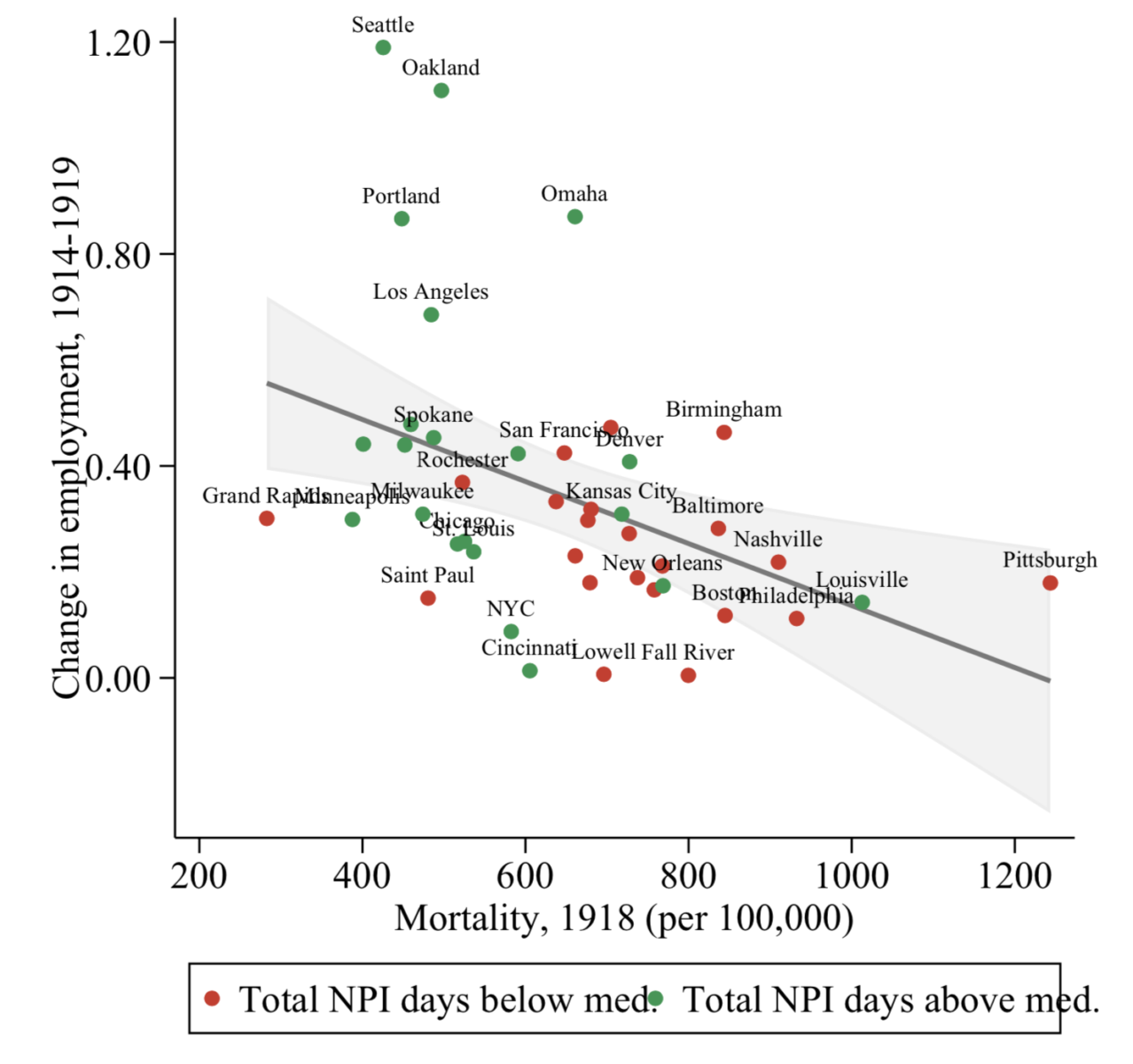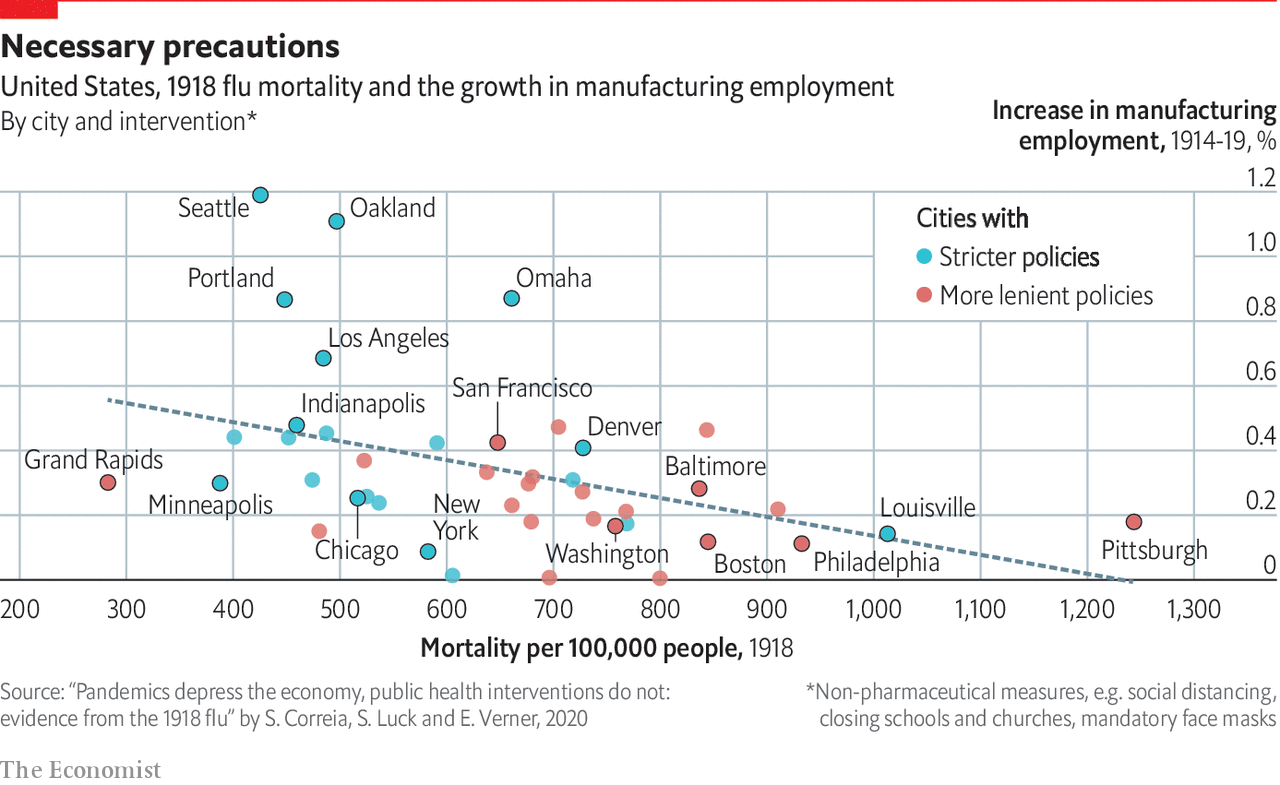1918 Flu Pandemic depressed the economy, but public health interventions did not.

Dots represent city-level 1918 influenza mortality and manufacturing employment growth around the 1918 Flu Pandemic. Green (red) dots are cities with non-pharmaceutical intervention days above (below) the median fall 1918.
About the lockdowns now affecting 75% of Americans:
“We cannot let the cure be worse than the problem itself.” –President Trump
That might not be the case.
A new paper by researchers from the Federal Reserve and MIT, the idea that “reducing deaths from a pandemic necessarily hurts the economy” is false.
The study analyzed America’s experience of the 1918 flu pandemic (Spanish flu), which infected 500 million people around the world and killed as many as 50 million:
“With respect to the economic effects of the pandemic, we find that more severely affected areas experience a relative decline in manufacturing employment, manufacturing output, bank assets, and consumer durables. Our estimates imply that the 1918 Flu Pandemic led to an 18% reduction in state manufacturing output for a state at the mean level of exposure. Exposed areas also see a rise in bank charge-offs, reflecting an increase in business and household defaults.
These patterns are consistent with the notion that pandemics depress economic activity through reductions in both supply and demand. Importantly, the declines in all outcomes are persistent, and more affected areas remain depressed relative to less exposed areas from 1919 through 1923.”
The study’s conclusion: “We find that cities that intervened earlier and more aggressively do not perform worse and, if anything, grow faster after the pandemic is over.”
The findings thus indicate that non-pharmaceutical interventions — social distancing and quarantines — not only lowers mortality; it also mitigate the adverse economic consequences of pandemics.
Sources:
Pandemics Depress the Economy, Public Health Interventions Do Not: Evidence from the 1918 Flu
by Sergio Correia, Board of Governors of the Federal Reserve System, Stephan Luck, Federal Reserve Bank of New York, Emil Verner. MIT Sloan School of Management
SSRN, March 30, 2020
See also:
Lessons from the Spanish flu: social distancing can be good for the economy
The Economist, March 31, 2020

Source: The Economist

